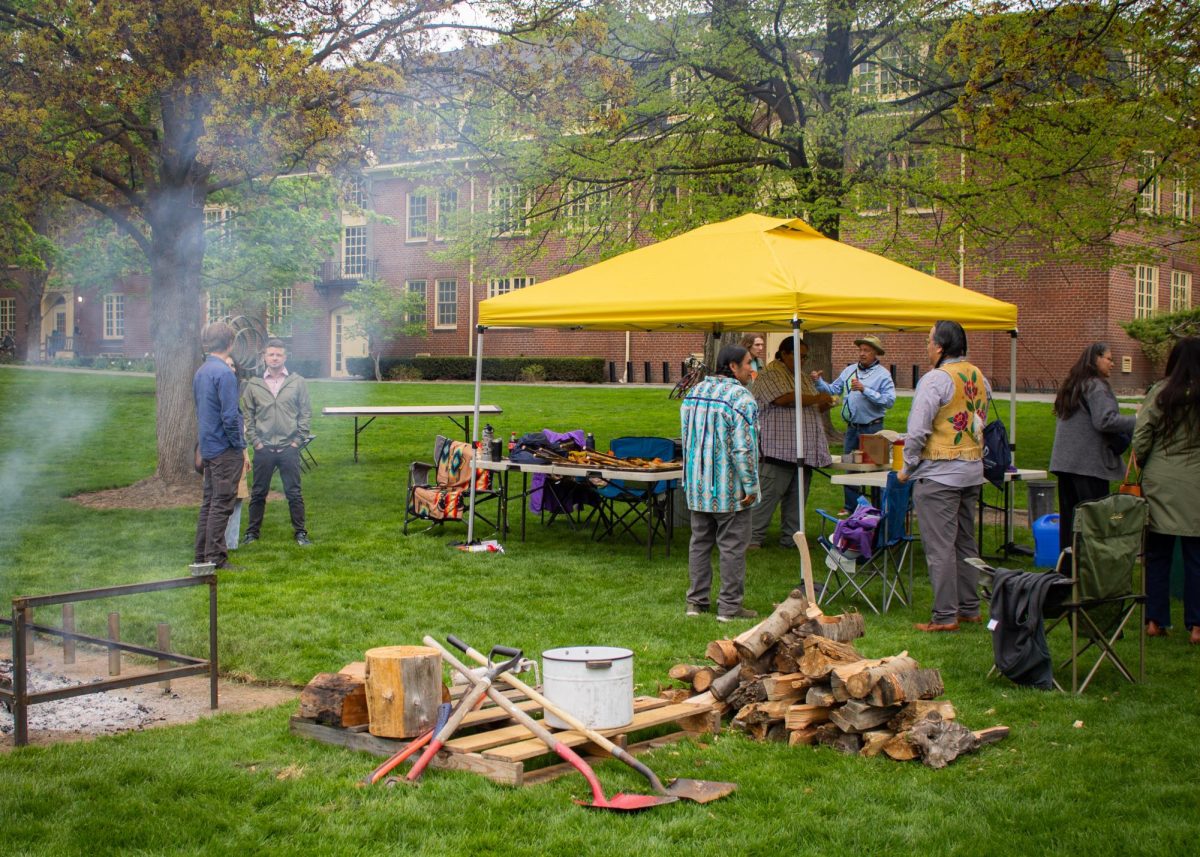Every September, the population of Pendleton, Ore. explodes. For three days, the historic Pendleton Round-up, which this year celebrated its 98th anniversary, captivates audiences from across the nation as 30,000 people pour into the town of approximately 17,000.
“There’s a lot of businesses here that keep themselves going just from the revenues from that one week,” said a representative from the Pendleton Chamber of Commerce, which also serves as the town’s visitor information office. “And that tides them over during the slow times. So the round-up is extremely important to the community.”
Sophomore Naomi Gibbs made the hour-long trip to Pendleton this year to attend the event with a group of other students.
“There’s a huge carnival with rides, and then there’s a street fair with lots of different food stands and bands playing, and cowboys as far as the eye can see,” she said. “Everyone’s dancing and there’s the performance part, and rodeo all day for three days.”
An integral part of the festivities is the performance of the Happy Canyon Night Show, which was first introduced in 1916, according to a spokesperson, for the Round-up. Despite its popularity, the show has begun to draw some criticism for using racial stereotypes in its depiction of the Old West.
Junior Mallory Powers, who wrote a paper on the Happy Canyon show for her alternative core class, attended this year’s Round-up with Gibbs on the advice of friends and professors.
“I knew that the portrayal of the American Indians was highly complex and also problematic,” she said. “Although I had done the research, I did not know what exactly the Happy Canyon show would be like, and I was mildly surprised by it.”
Split into two parts, the staged performance starts out as a narrative about the impact of the arrival of White settlers from the east coast on the local indigenous people, then shifts scenes to a bustling frontier town. Members of the town and the Umatilla Indian Reservation collaborate in acting out the script.
“A role is passed down through a family for years, and it’s become sort of a neo-tradition,” said Gibbs.
“It was a simplified portrayal of Pendleton history,” Powers said. “Parts included narration of Native American traditions, other parts resembled old western cowboy vs. Indian fighting scenes, other parts were talent-show-like, and others included slapstick humor.”
Gibbs referred to the historical narration as essentially accurate but with skewed perspective.
“They cut out what were sort of key things to me,” she said. “The Native Americans will say things like, ‘we were upset that the white man’s medicine didn’t help cure us,’ but they didn’t say that the white men brought small pox and killed everyone, and then the medicine didn’t work.”
In discussing the Happy Canyon show with Jennifer Carson, who works at Pendleton’s Tamastslikt Cultural Institute and has lectured and taught at Whitman, Gibbs was able to uncover more information about the show’s history.
“It was the same script that it was 90 years ago until about three years ago they decided to re-do the narrative part,” Gibbs said.
Both Gibbs and Powers emphasized that they enjoyed the festive atmosphere and entertainment value of the Round-up, but were driven to learn more about the Happy Canyon show.
“Part of what I found in doing the research for my project last year is that the pageant has acted as a way for the Indian people to remember and celebrate traditional aspects of their culture that are no longer relevant to the current way of life,” said Powers. “However, these traditions are put on as entertainment for a largely white population and are distorted in this portrayal. I found mixed sentiments toward the pageant by the American Indian people.”
The portrayal that caused the most discomfort for Gibbs and Powers was in fact that of the Chinese American immigrants, played by White actors in costume, who manned the shops of the campy frontier town.
“They were wearing like stereotypical Chinese pajamas,” Gibbs said. “And they were often sort of the stupid characters, like they would do ridiculous things like let the chicken loose on the town, or they would go around and rub their braids in people’s faces. They were really poorly portrayed.”
While instances of racism in the nearly century-old play did not go unnoticed, Gibbs said they did not detract from the overall excitement and positive feel of the Round-up.
“I had a ton of fun,” she said. “I’m glad I went, and I’ll probably go again.”
Gibbs also made the point that Whitman students sometimes misinterpret accounts of the Round-up or are quick to judge.
“It’s hard for me to talk to people at Whitman about the experience because I feel like what gets emphasized is always, ‘Oh my god, what a racist event, that’s so horrible,’ ” she said. “There are things that we might frown upon as Whitman students in our liberal bubble about the Pendleton culture, but it’s not that anybody there thinks the Happy Canyon pageant is reality. They do it because it’s entertaining, and because it’s a tradition that’s been passed down. And they’re super pumped about their one hundredth anniversary coming up in two years.”








